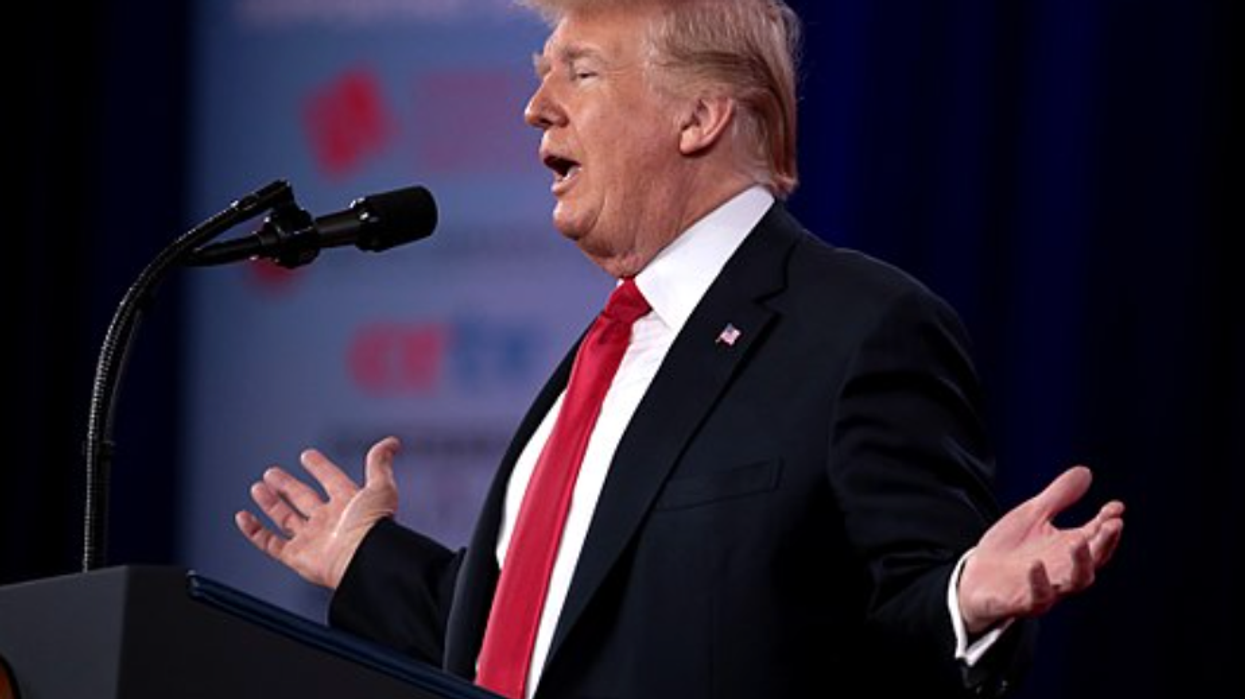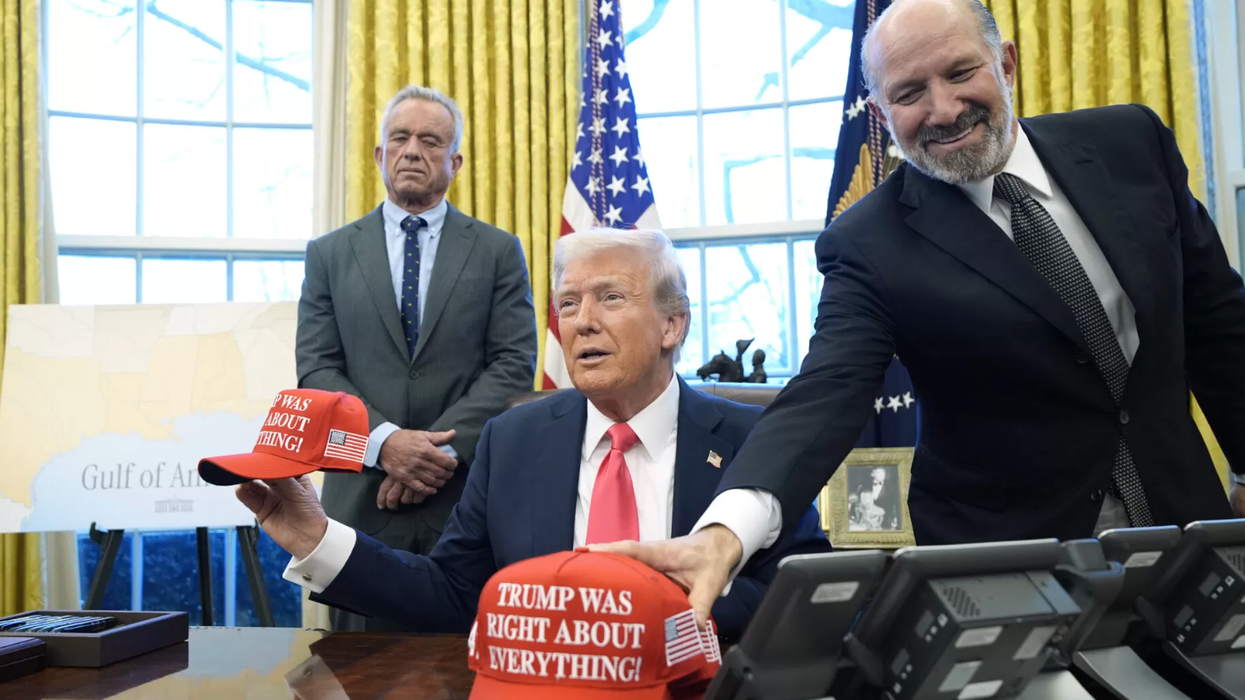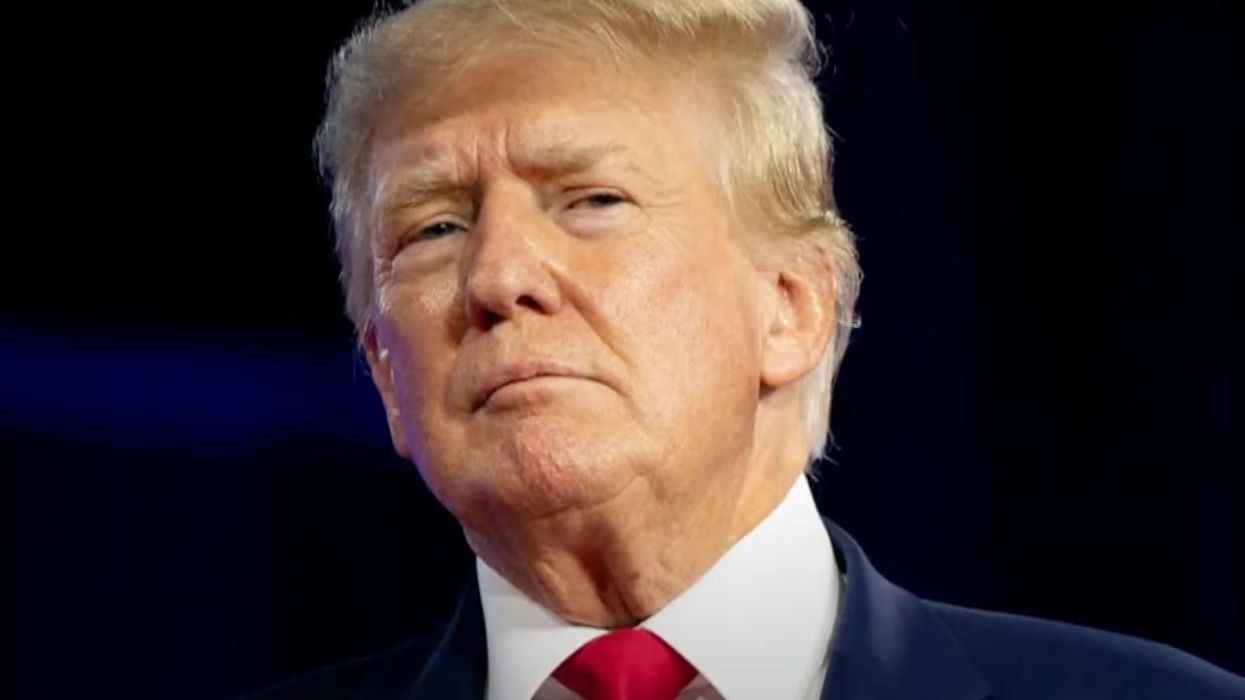How Trump Is Waging An Illegal War On Blue America
Donald Trump is using the powers of the presidency — augmented with powers that the Constitution doesn’t give him — to make war on blue states and their officials.
There have been critical historical periods when presidents used federal law to enforce constitutional rights against recalcitrant state officials. But never since the Civil War, if then, have we seen a president undertake a methodical program of harassment and domination of states controlled by his political opponents.
Begin with the ongoing crisis in Los Angeles. The fundamental point is that the crisis is entirely of Trump’s making. There is no tenable argument that federalizing the National Guard is necessary to quell unrest, which has already subsided and never approached the levels that justified prior federal interventions.
On the contrary, California and its governor have been adamant that Trump’s power play is unwelcome, and that the state’s law enforcement resources are fully capable of handling any disturbance. They took the unusual step of suing the Trump administration, and an opinion by Judge Chuck Breyer upheld their claim. (It is currently administratively stayed in the Ninth Circuit, which heard argument earlier this week. Breyer, for his part, is going ahead with a preliminary injunction hearing tomorrow.)
But the point here is less about Trump’s potential authority to charge into LA than his zeal to do so over the state’s objections. As usual, the dispute features Trump’s lies to justify his excessive response — grossly exaggerating the degree to which LA is under siege.
Importantly, Trump’s order purporting to authorize his intervention isn’t limited to Los Angeles; it could apply anywhere.
Indeed, earlier this week he issued a Truth Social message proclaiming that "we must expand efforts to detain and deport aliens in America's largest Los Angeles, Chicago, and New York, where Millions upon Millions of Illegal Aliens reside."
Why those cities? According to Trump: “These, and other such Cities, are the core of the Democrat Power Center, where they use Illegal Aliens to expand their Voter Base, cheat in Elections, and grow the Welfare State, robbing good paying Jobs and Benefits from Hardworking American Citizens.”
It’s a breathtaking statement from an American president. The various accusations against Democrats are patently false. But even setting that aside, exploiting a supposed national crisis to demonize political opponents is antithetical to a president’s role in moments of national crisis.
Nor is it an isolated example. This week saw horrific murders and attempted murders by a Trump partisan in Minnesota — exactly the kind of violence long feared as a product of Trump’s incendiary rhetoric.
What do we expect from a president in such circumstances? Consider President George W. Bush after the 2007 Virginia Tech shooting, saying the tragedy “is felt in every American classroom and every American community.” Or President Barack Obama, who called then-Republican Governor of Arizona Jan Brewer to offer federal resources after the shooting of Gabby Giffords. They and other presidents acted swiftly to reassure and unify the nation and reaffirm broad democratic values.
Trump’s reaction was to refuse even to call Minnesota Governor Tim Walz. Instead, he vilified Walz as a “terrible governor” and a “grossly incompetent person,” saying any call would be a waste of time.
It fell to Walz and the entire bipartisan Minnesota congressional delegation — four Democrats and four Republicans — to strike the proper note of unity and honor for the victims, making Trump look like a horse’s ass by contrast.
Yet, the feds found another way to exploit Minnesota, one that’s gone largely unnoticed.
The Department of Justice has a longstanding policy — the Petite Policy — that imposes a strong presumption that the state of Minnesota should prosecute defendants like Vance Boelter first. The feds step in only if the state prosecution leaves federal interests “demonstrably unvindicated.” That principle is especially strong here, given that the victims include Minnesota state officials.
Instead, it appears the federal government is maneuvering to leapfrog the state and grab the first trial of Boelter. He was scheduled to appear on state charges, but federal marshals seized him and brought him to federal court to face federal charges.
The hip check, if successful, will let the feds hog the spotlight for the trial that fundamentally concerns Minnesota far more than it does the administration. And the Department is likely to seek the death penalty, especially given Trump’s general exhortations to pursue capital cases. The Hennepin County attorney who would bring state charges, by contrast, opposes the death penalty. In this respect too, the feds are steamrolling the sovereign interests of the state and its popular judgment that life without parole is the maximum punishment the government should impose.
Then we have completely improper, unpredicated investigations of Democratic figures at the whimsy of administration hacks such as Ed Martin Jr. and Alina Habba, who declared that she intends to use her perch as Acting U.S. Attorney in New Jersey to try to advance Republican fortunes in that state. She has announced investigations into New Jersey’s Democratic governor and attorney general.
Even assuming they go nowhere, federal investigations bring expense and anxiety to their subjects. Launching them without basis is a signature undertaking of a corrupt authoritarian government.
And of course, there is the ongoing spectacle of militarized arrests of Democratic — and only Democratic — politicians: four and counting (plus a judge without party affiliation), carried out by ICE agents in masks and heavy tactical gear. The agents aim for maximum intimidation — a bully-boy tactic Bill Kristol aptly called “ridiculous.”
There have been only a handful of instances in the last 150-plus years where presidents deployed force over state objections — nearly always when state officials openly defied federal law or court orders.
Trump’s warfare is different. First, he’s the instigator. His aim is to sow chaos and panic in blue states, then use it as a pretext to storm in. The blue states are keeping the peace; he’s breaching it. Second, his war plans target only Democratic strongholds. He seeks to bully and intimidate political opponents while rousing MAGA supporters he has trained to see Democrats as traitors. Third, he seeks to deepen the national divide — the engine of his despotic rule.
Trump may be executing a long and detailed playbook drawn from Project 2025, but he remains a one-trick pony: aggrandizing his power by belittling and intimidating opponents. After four months, he has little to show for his second term: courts have repeatedly blocked his executive orders, and he has no meaningful legislative wins. He is a vicious hater, and his direct assault on blue states and officials is fully in character. But at this point, it’s also his sole governing strategy.
Here’s a periodic note – I do these rarely and keep them brief – to express my gratitude to paid subscribers and to ask others to join them. You and you alone sustain this Substack, which is just me and Talking Feds colleagues putting out the best and most pertinent pieces we can. And this is where I now put nearly everything I write. We’re also doing the Is It Legal feature and more Substack Lives, and creating more material for paid subscribers.
And I think we’re building something together — a new channel of democracy-forward, engaged patriots looking to stay informed, call out the lies, and fight back as we can – and as the nationwide No Kings protests proved, we can. If you think the material is worthwhile, please consider supporting us. As with all Talking Feds franchises, we’re independent and beholden to nobody other than our own sense of obligation and responsibility to you to bring the strongest analysis and reporting of the ongoing assaults on democratic rule of Trump 2.0.
Thanks and…
Reprinted with permission from Substack.












